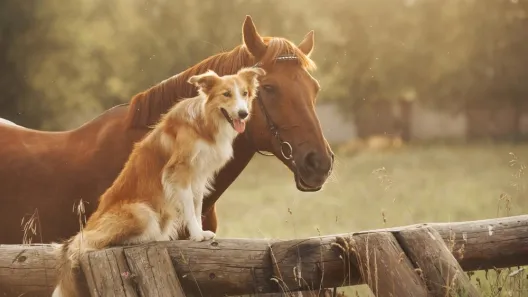Are you looking for a companion that’s as spirited as they are sophisticated? Tiny Boston Terrier Puppies For Sale might be exactly what you need. Known affectionately as the “American Gentleman,” these dogs blend a dapper appearance with a lively personality, making them a beloved choice for many households. Originating from the United States around 1870, Boston Terriers were the first non-sporting breed developed in the U.S. and were officially recognized by the AKC in 1893. Their distinctive “tuxedo” markings and compact build, complete with erect ears and short tails, give them a unique charm. Beyond their striking looks, Boston Terriers are intelligent, affectionate, and playful dogs that excel as companions and can even participate in various dog sports like agility and flyball.
 A group of tiny Boston Terrier puppies playing together in a grassy area.
A group of tiny Boston Terrier puppies playing together in a grassy area.
Understanding the Boston Terrier Temperament
When you consider bringing tiny Boston Terrier puppies for sale into your home, understanding their temperament is key. Boston Terriers are known for their intelligent, enthusiastic, and affectionate nature. They generally possess a sweet and friendly disposition, and with proper socialization from a young age, they tend to get along exceptionally well with children, other dogs, and even other pets. Their outgoing personalities often extend to strangers, though they may initially bark to alert you to their presence. Early training to manage barking is advisable, as Bostons can be prone to vocalization if not guided.
Adaptability and Living Environment for Boston Terriers
The adaptability of Boston Terriers makes them suitable for a variety of living situations. They can thrive in apartment settings as well as larger homes with yards. They are generally comfortable in most climates, but it’s important to remember their brachycephalic (short-nosed) nature. This means they are more sensitive to extreme heat and may require protective gear, like winter dog coats, during colder months. Boston Terriers form close bonds with their families and thrive on attention, so they do not fare well when left alone for extended periods.
 A Boston Terrier dog sitting attentively, looking towards the camera.
A Boston Terrier dog sitting attentively, looking towards the camera.
Health Considerations for Tiny Boston Terrier Puppies
As with any breed, being aware of potential health concerns is crucial when looking for tiny Boston Terrier puppies for sale. Boston Terriers can be prone to certain issues, including cataracts, glaucoma, corneal ulcers, patellar luxation, allergies, and deafness. Choosing a reputable breeder who screens their breeding dogs for genetic conditions can significantly reduce the risk of passing these issues to puppies. Always inquire about the health history and any health tests performed on the parents.
Furthermore, like other brachycephalic breeds, Boston Terriers can experience respiratory challenges, such as snoring and reverse sneezing. Reverse sneezing, while alarming, is a harmless reflex where the dog snorts or gags to clear mucus from their palate. Managing seasonal allergies can also help minimize mucus production. Boston Terriers may also have sensitive digestive systems, which can lead to gas, particularly if their diet is not carefully monitored.
Owner Experience and Trainability
Boston Terriers are considered an excellent choice for novice owners due to their intelligence and eagerness to please. They learn quickly, although they can occasionally exhibit a stubborn streak. Their sensitivity to their owner’s voice means they respond well to positive reinforcement and a patient, consistent training approach. Puppy training classes are highly recommended as they offer numerous benefits and can help establish a strong foundation for obedience and socialization. Due to their sensitive nature, harsh criticism can lead to stubbornness, so maintaining a positive and encouraging training environment is paramount.
 A close-up of a Boston Terrier's face, highlighting its expressive eyes.
A close-up of a Boston Terrier's face, highlighting its expressive eyes.
Grooming and Exercise Needs of Boston Terriers
The grooming requirements for Boston Terriers are relatively low. Their short, smooth coat, typically black, seal, or brindle with white markings, sheds minimally year-round. Weekly brushing and occasional baths are usually sufficient to maintain their coat’s health and appearance. Beyond coat care, regular attention to their nails, eyes, ears, and teeth is essential.
- Nail Trimming: Trim nails once or twice a month to prevent overgrowth and discomfort.
- Eye Care: Boston Terriers have prominent, round eyes that are susceptible to debris. Daily checks for redness, irritation, or discharge are recommended. Saline eye drops can be useful for flushing out irritants.
- Ear Cleaning: Check ears weekly and clean them carefully as needed to prevent infections.
- Dental Hygiene: Gum disease is common in dogs, and small breeds like Boston Terriers are particularly prone. Daily teeth brushing and professional cleanings as recommended by your veterinarian are crucial for maintaining good oral health throughout their lives.
Despite their small size, Boston Terriers have moderate energy levels and enjoy playtime. Daily walks and engaging play sessions are typically sufficient to meet their exercise needs. They can have bursts of high energy, so providing them with stimulating toys will help keep them occupied. It’s important to be mindful of their brachycephalic nature when exercising them, ensuring they do not overheat, especially during warmer weather.
Size and Lifespan
A fully grown Boston Terrier typically stands between 15-17 inches tall and weighs between 12-25 pounds, classifying them as a small breed. With proper care and attention to their health, Boston Terriers generally enjoy a lifespan of 11-13 years, with many living well into their teenage years.
Did You Know?
The Boston Terrier holds a special place in American history and culture. Beyond being the official state dog of Massachusetts, they also serve as beloved mascots for several educational institutions. Rhett, a Boston Terrier, is the proud mascot of Boston University, and Wofford College in Spartanburg also features a Boston Terrier as its mascot, embodying the breed’s intelligent and spirited character.
When searching for tiny Boston Terrier puppies for sale, remember that these charming dogs offer a unique blend of elegance and enthusiasm, making them wonderful companions for the right family. Their adaptability, trainability, and loving nature ensure they bring joy and character to any home.
